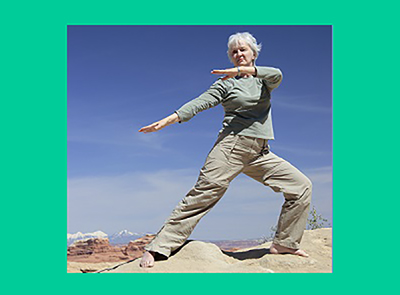
Exercise helps prevent falls and even can reverse some of the many conditions associated with aging. Tai Chi, in particular, earned a spot in a Harvard Health publication. The ancient Chinese mind-body practice improves balance and muscle tone, and could be “the perfect activity for the rest of your life,” according to the article. Even people in wheelchairs can do it.
June is National Safety Month. Today, Americans are living longer while staying active and healthy. But adults 65 and older are at risk for falls, which can signal the beginning of the end of that active life – and their independence. Injuries from falls can lead to limited activity, reduced mobility, loss of fitness and a fear of falling, all of which increase risk of additional injury.
Falls also are the leading cause of injury-related death for adults age 65 and older, according to Injury Facts 2016, the statistical report on unintentional injuries created by the National Safety Council. This is not surprising considering falls are among the most common causes of traumatic brain injury. About 20,400 people died from falls at home in 2014, and the vast majority of them were over age 65.
According to the Centers for Disease Control and Prevention:
- One in three older adults falls each year
- About 2.5 million nonfatal falls were treated in emergency departments in 2013
- Of those, 734,000 people were admitted to the hospital
- That year, 25,500 older adults died from unintentional falls
- More than 250,000 hip fractures are reported every year, and 95 percent of those are from falls
The Good News
Falls are preventable and aging, itself, does not cause falls.
Some of the underlying causes of older-adult falls, such as muscle weakness, medications that cause dizziness, improper footwear, impaired vision, slick floors, poor lighting, loose rugs, clutter and uneven surfaces, can be improved.
While falls can happen anywhere, they most often occur at home. What can you do to make your home or the home of someone you love safer?
- Remove clutter, small furniture, pet gear, electrical cords, throw rugs and anything else that might cause someone to trip
- Arrange or remove furniture so there is plenty of room for walking
- Secure carpets to the floor
- Wipe up spills immediately
- Make sure outdoor areas are well lit and walkways are smooth and free from ice
- Use non-slip adhesive strips on stairs
- Use non-skid mats or appliques in the bath and shower
- Install grab bars in the tub, shower and near the toilet
- Install railings on both sides of stairs
- Provide adequate lighting in every room and stairway
- Place nightlights in kitchen, bath and hallways
- Make often-used items more accessible, like food, clothing, etc., so an older person won’t be tempted to use a stool or ladder to get to them
- If necessary, provide personal walking devices, such as a cane or walker, to aid in stability.
Tai Chi can reduce risk for falls
Harvard Medical School touts the value of exercise in preventing falls and even reversing some of the many conditions associated with aging. Tai Chi, in particular, earned a spot in a Harvard Health publication. The ancient Chinese mind-body practice improves balance and muscle tone, and could be “the perfect activity for the rest of your life,” according to the article. Even people in wheelchairs can do it.
PubMed.gov also conducted a six-month trial to determine the effect of Tai Chi on older adults. During the trial, inactive older adults who did Tai Chi three times a week decreased the risk of falls by 55 percentcompared to a control group.
–National Safety Council